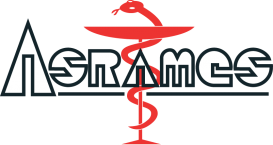Source: QUAMED
Dear BeCause Health friends, dear friends of the new QUAMED,
I am very happy to share this open-access publication (also available at http://gh.bmj.com/content/2/2/e000172), which resulted from the first analysis of data derived from QUAMED operational activities. The analysis was carried out in the framework of Ariadna Nebot’s master thesis at ITM.
We evaluated the compliance of a sample of pharmaceutical distributors active in sub-Saharan Africa (either based in Europe or in sub-Saharan Africa) with the standards of the WHO guideline ‘Model Quality Assurance System (WHO MQAS) for procurement agencies’. This part of the study (the “quantitative” one) consisted of a retrospective secondary analysis of data collected by QUAMED auditors. In a second part of the study (the “qualitative survey”) we investigated factors favoring or hindering the adequate implementation of the MQAS; this was done by means of formal and informal interviews with key informants.
Overall, our findings suggests that international distributors based in Europe perform, on average, better than those based in sub-Saharan Africa. However, some weaknesses are ubiquitous and concern the most critical processes, such as the initial selection of the products and the ongoing reassessment of their quality. According to our “qualitative” findings, this is due to several different factors: weak regulatory oversight, insufficient human/financial resources, weak negotiating power, limited judicial autonomy and/or lack of institutional commitment to quality. Even if based on a small, convenient sample of distributors, these findings suggest that pharmaceutical distributors active in sub-Saharan Africa generally do not apply stringent criteria for selecting products and suppliers. Therefore, product quality is not consistently assured but depends on the requirements of purchasers.
While long-term solutions are awaited, we strongly suggest that collaboration and transparent exchange of information between regulators from the North and the South should be pursued; and that the WHO MQAS guideline should be used by all concerned stakeholders as an evaluation and training tool to upgrade the current standards of practice of pharmaceutical distributors active in sub-Saharan Africa.
